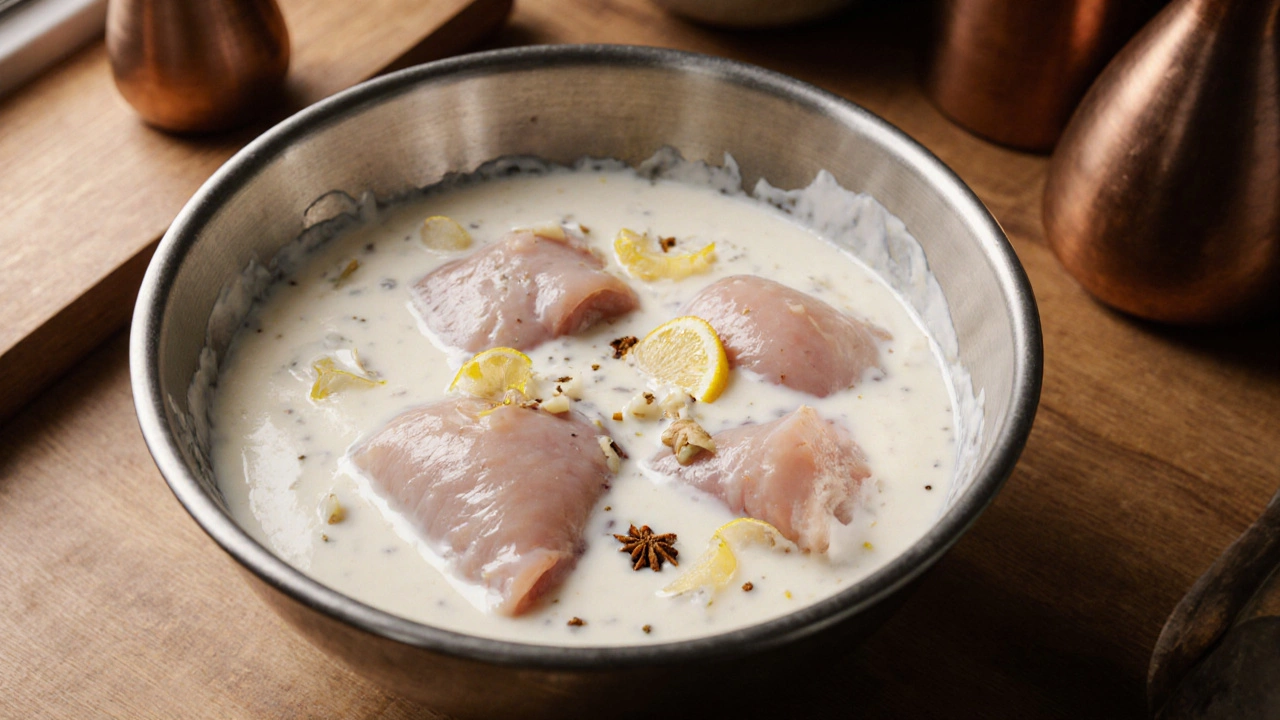Yogurt Marinade: Tips, Tricks, and Delicious Ideas
When working with Yogurt Marinade, a tangy, protein‑rich base that breaks down fibers and carries spices into the food. Also known as curd‑based marinade, it keeps meat moist and adds a subtle sour note. This technique is closely linked to Tender Chicken, pieces that stay juicy after cooking because the acid and enzymes in yogurt soften the muscle fibers and relies on Spices, ground or whole flavor boosters like cumin, coriander, chili, and garam masala that enhance the aromatic profile. A third player, Buttermilk, another dairy acid that can be swapped for yogurt when a lighter texture is desired, often appears in similar soak recipes. Together they form the semantic triple: Yogurt Marinade enhances Tender Chicken, Yogurt Marinade requires Spices, and Spices influence the flavor of the Yogurt Marinade. Understanding these connections helps you pick the right ingredients and timing for any dish you plan to marinate.
Why Yogurt Works as a Marinade
Yogurt’s magic comes from two parts: its natural acidity and its proteins. The lactic acid gently lowers the pH on the surface of meat or vegetables, which opens up the pores and lets flavors sink deeper. At the same time, the casein proteins form a thin coating that traps moisture, preventing the food from drying out during high‑heat cooking. When you add spices, the fat in yogurt helps dissolve oil‑soluble compounds, making the heat‑stable flavors stick better. For chicken, a 30‑minute soak can already soften the texture, but a 4‑hour or overnight marination maximizes tenderness and flavor penetration. Vegetables benefit similarly; the acid brightens their natural sweetness while the yogurt creates a creamy glaze that caramelizes nicely on the grill or in the oven. If you’re after a milder tang, substitute buttermilk or mix half yogurt with half water to adjust the strength without losing the protein coating.
Practical tips keep your yogurt marinades from turning mushy or separating. First, whisk the yogurt until it’s smooth—clumped yogurt can cause uneven coating. Second, add a pinch of salt early; it helps the proteins bind and improves moisture retention. Third, watch the temperature: keep the marinating bowl in the fridge; warm environments accelerate bacterial growth and can cause the yogurt to curdle. Finally, remember that dairy reacts differently with very high heat; searing at extremely high temperatures can cause the yogurt coating to burn, so start on medium heat and finish with a quick blast of high heat if you want a char. Below you’ll find a curated list of articles that dive deeper into specific marinades, timing tricks for garlic and ginger, and the science behind other soaks like citrus and enzymatic methods.

Should You Rinse Yogurt Marinade Before Cooking?
Discover whether rinsing a yogurt marinade before cooking is necessary, the science behind it, safety tips, and practical guidelines for best flavor and texture.